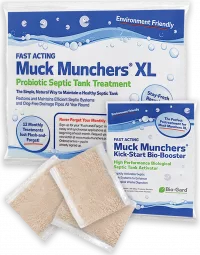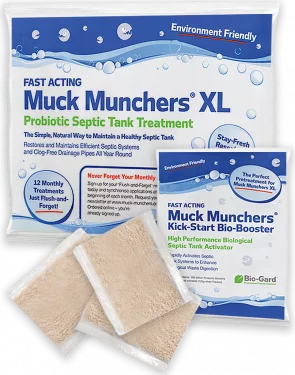How to Reduce Septic Tank Grease
As efficient as septic tank systems are, grease remains a common cause of concern for septic tank owners.
Grease in septic tank systems can cause short-term distress – and potential long-term headaches too. That is why, in this article, we will address the issues and help you to reduce septic tank grease.
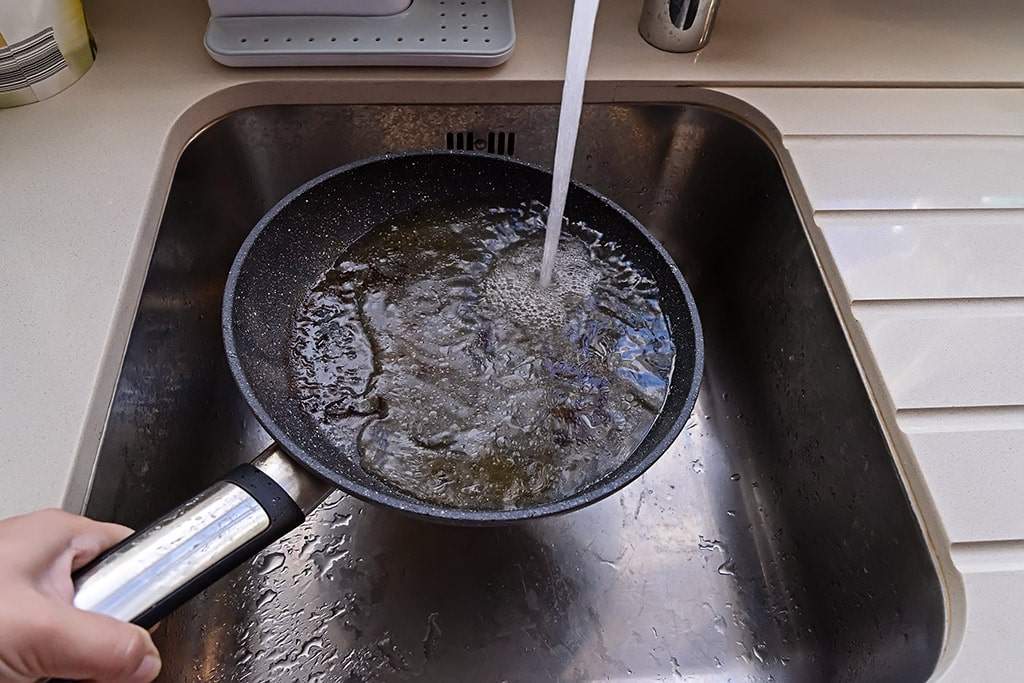
Why is Grease a Problem for Septic Tanks?
Grease is problematic mainly due to its propensity to clog. Even in non-septic systems, those connected to the mains may still have issues with grease too.
Grease clogs build-ups can lead to blocked drains, slow draining sinks, baths, showers and basins and, of course, lead to pooling of water in sinks and bathtubs alike.
Septic tanks rely on ‘helpful’ bacteria to break down organic solids and waste. Without these bacteria, the waste in your septic tank would simply build-up, which is why, for septic tank systems, grease poses further problems for your bacteria population.
Grease build-up can lead to the ‘crusting’ of waste on the surface of your septic tank. This leads to bacteria in your tank receiving less oxygen – thus reducing their ability to break down waste, including the surface fats, oils and greases.
Further down the system, fat, oil and grease discharges can lead to soakaway deterioration. These fatty solids – otherwise known as FOGs – can bond to soil particles and prevent the ‘clean’ wastewater from safely soaking into the soil.
In addition, your septic tank is at risk of backing up – which will lead to an unpleasant scenario that may require expensive pumping out.
What is a septic system back-up?
A septic tank back-up is where your waste levels simply keep building. This may be a result of reduced bacteria populations and/or soakaway clogging. Crucially, this may lead to leaking effluent, ineffective drainage inside the home, and potential odours and health hazards for both you and your neighbours.
What Causes Grease Build-Ups in a Septic Tank?
Grease build-ups are largely caused by the improper disposal of FOGs – fats, oils and greases. Even if you never pour oil or grease down your kitchen sink directly, it can still make its way into your septic system without due care and attention.
For example, you may find that simply washing a greasy pan or two can lead to blockages. In fact, soap itself, if used excessively, can build up a greasy residue that could impact the bacteria in your septic tank.
Do be mindful when flushing items such as moisturiser and suntan lotion – even washing these products off your body, if used excessively, can lead to septic tank problems.
Another factor to be mindful of is natural oils from your skin. There is little you can do when it comes to the oil or grease your body produces. One way to counteract natural oil build-up may be to reduce unnecessary showers or baths and preserve your body’s natural oils.
How Do You Reduce Septic Tank Grease to Prevent Grease Build-Ups?
Reducing grease build-ups in your septic tank starts with a slight change in habits. You need to think about what you are flushing from your home to your tank.
- Always dispose of fat, oil and grease away from your kitchen sink – you have two choices here. To drain oil into a bottle that you can then securely tighten and put out with your rubbish, or, you need to leave the cooking fats to cool and harden before removing them into your rubbish bin.
- Take care to manage the levels within your septic tank. The more familiar you are with the tank, the quicker you will notice negative changes and be able to act accordingly. Look for changes in colour – your waste level should be brown to green in colour with some evidence of bubbling (proving the tank is active).
If your tank waste levels are greyer in colour and there are few bubbles, FOGs are already starting to build up, and If there’s a hard crust, your tank needs a little more care and attention.
What Septic Tank Products to use to Break Down Grease in Your Tank?
Regular monthly usage of Muck Munchers XL will help to keep your septic tank levels manageable with ideal levels of good bacteria. However, it’s also worthwhile considering Digesta Waste Trap and Drain Cleaner. This specifically targets FOGs, while boosting digestive microbe populations.
If your septic tank grease blockage is severe, you may need a ‘shock treatment’ – such as Bog Busters, an easy to use high-performance septic shock treatment that digests excessive sewage effluent and FOG’s while eliminating unpleasant odours reactivating your tank and improving soakaway performance too. If the crust is thick, then the first thing to do is to break it up, to allow more oxygen to enter the tank and give the bacteria a head-start to improve digestion.
Of you are not already using it, we recommended that you use our Muck Munchers, flushable treatment every month to continue keeping your septic system flowing freely.
The only way to ensure your septic tank is breaking down organic waste efficiently – and breaking through nuisance grease – is to reduce the amount of FOG’s you are physically adding into your tank and to add more bacteria to your tank.
By reducing FOG discharge and adding bacteria to your septic tank, you’ll start to notice your surface scum or crust diminishing and waste levels starting to drain efficiently once more.
Can Grease Damage My Septic Tank Soakaway?
Grease can damage your soakaway. Without bacteria, your soakaway will be forced to try and drain through undigested effluent – instead of cleaner greywater, treated and safe to disperse.
There is also less oxygen available in the soakaway portion of a septic tank. Therefore, your waste cannot rely on such effective bacterial digestion further down the line – you need to ensure populations have enough oxygen at the head of the tank.
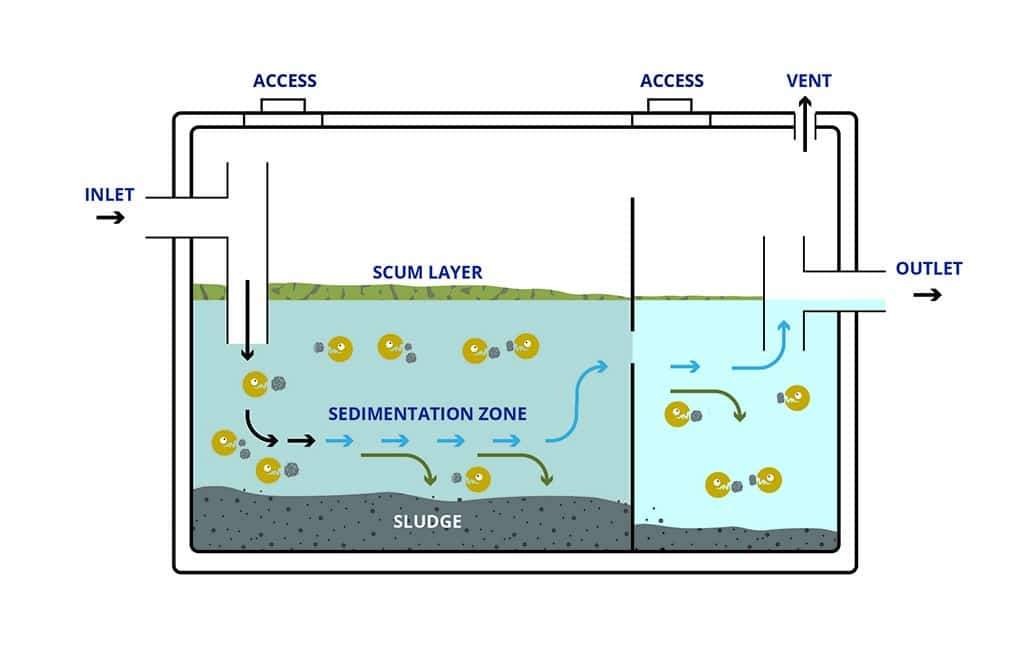
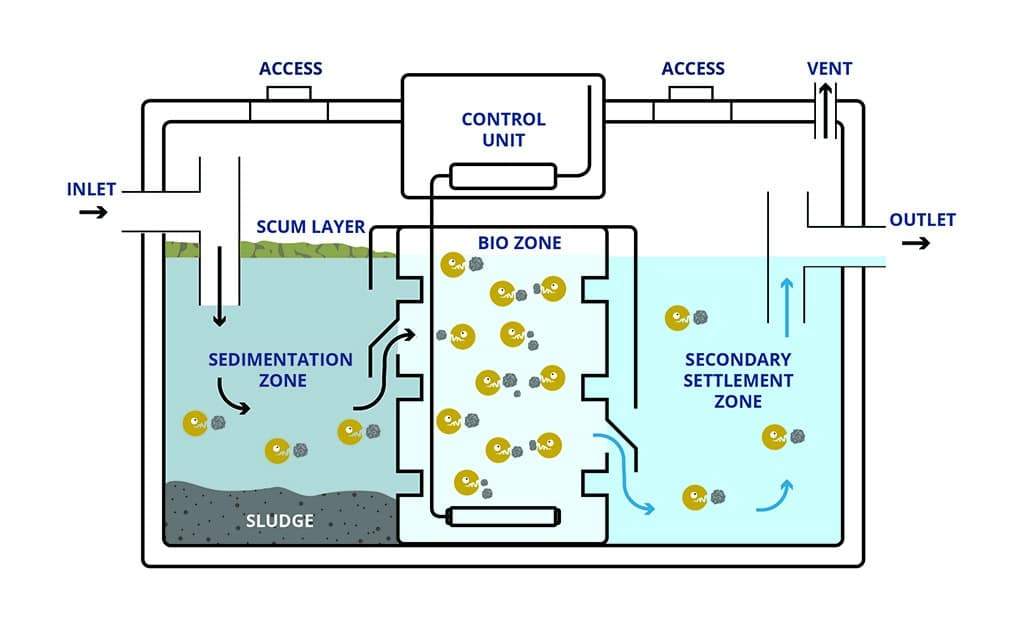
Do Detergents Dissolve Grease in Septic Tanks?
In theory, many detergents can help dissolve grease in septic tank systems. The detergents do not break down the FOG but emulsify it – meaning 100% ends up in the septic tank or treatment unit. Be warned though as many of these products can contain chemical and antibacterial compounds that kill off the microbes in your tank. You are, essentially, replacing the grease in your tank with a solution that’s just as toxic to your bacteria and the environment.
While it may appear prudent to use detergents to help reduce FOGs, simply increasing your bacteria populations and cutting back on household FOG discharges is the most efficient route to a grease-free system.
In Summary
Now’s the time to check your tank – break up any crust that may have formed, stir it a little, and add Muck Munchers to bring your bacteria population back to full health.
To continue the maintenance of your septic tank and to prevent repeat issues in the future be aware of the main culprits that cause grease build-ups in septic tanks, so you have the control to reduce and find ways to improve how you dispose of them:
- Fats and greases from kitchen pots, pans, plates
- Soaps
- Makeup & personal care products – moisturiser and suntan lotions
- Natural oils and fats from your skin
Some of our customers, especially commercial customers such as restaurants, hotels & Bed and Breakfasts have Grease Traps. If you are really struggling you may consider installing a trap to help improve any grease issues you are experiencing.
